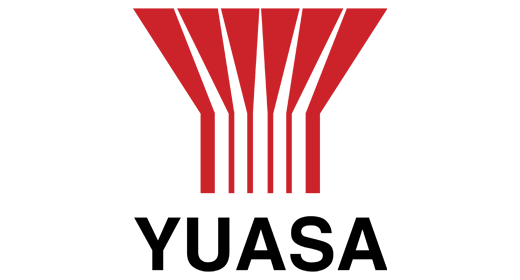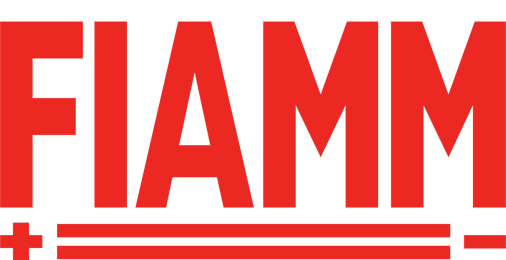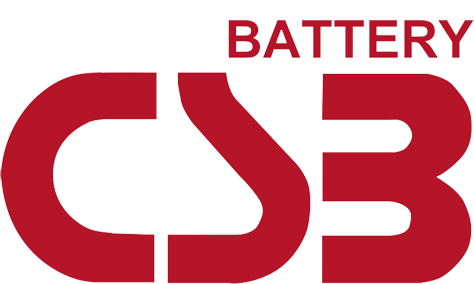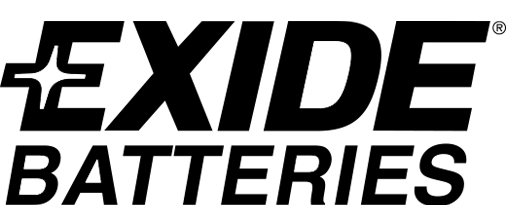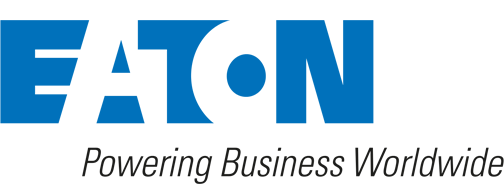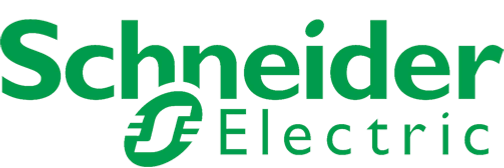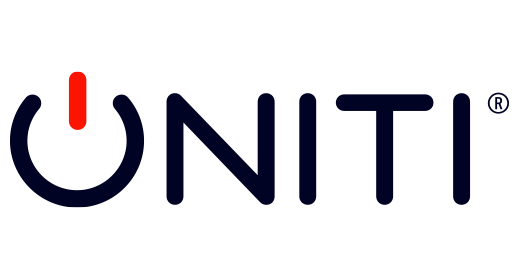Leveraging IoT for Smarter UPS Management: Enhancing Monitoring and Efficiency
In our increasingly digitised world, where machines openly communicate with each other, we're witnessing an unmatched rapid growth on the Internet of Things (IoT) landscape. The realm of Uninterruptible Power Supply (UPS) management in the UK is no different.
UPS is a critical aspect in the sphere of power management, tasked with ensuring the unhindered flow of operations by avoiding sudden loss of power. However, traditional power management methods fall short when it comes to real-time monitoring and efficient energy usage, particularly in extensive industrial facilities. This is where the implementation of IoT comes into the picture, transforming the UPS landscape with smart, connected solutions.
The integration of IoT into UPS management has achieved astounding progress. By leveraging data analytics and offering real-time insight into power usage, IoT has made it possible for industries to optimise their power usage and save on operational costs. These "smart" UPS systems have revolutionised the way power use is tracked, analysed and managed in the nation.
In this article, we'll delve into the growth of the Industrial IoT market in the UK, the adoption of IoT, and how it has given rise to a surge in efficiency and improved monitoring in UPS management. Join us as we explore the future of smarter, greener industries powered by IoT-enabled UPSs.

Growth of the Industrial IoT market in the UK
The burgeoning field of Industrial Internet of Things (IoT) is making waves across numerous sectors. Its prominence in automating processes, as well as optimising operational efficacy, is notable because of the enormous potential it holds. Now, if we narrow our focus to the United Kingdom, the Industrial IoT landscape boasts some promising prospects. Without a shadow of a doubt, the UK is geared up to become a powerhouse in Industrial IoT.
Projected growth (2024-2029)
The journey to this exciting digital future begins now. Over the next five years, we're projected to see an exponential leap in the growth of the UK's Industrial IoT market. The projected numbers? An impressive 12.72% increase from 2024 to 2029. If one were to translate this into monetary terms, we'd be looking at a booming market volume of around £7 billion by 2029.
Does the number sound astounding? Absolutely, but it's not surprising given the rapid adoption and implementation of Industrial IoT across various industries in the UK.
Projected CAGR (2024-2032)
Another critical metric highlighting the flourishing IoT landscape in the UK is the robust Compound Annual Growth Rate (CAGR). When we glance at the period between 2024 and 2032, the projected CAGR makes for an exciting read. It stands at an enticing 21.60%.
This affirmatively high CAGR reiterates the headline: The Industrial IoT market in the UK is firmly on an upward trajectory. This isn't mere hype - the numbers back it up robustly.
Adoption of IoT in the UK
IoT, short for Internet of Things, is no longer a wave of the future. Its influence is being felt right here, right now, especially across the United Kingdom, where businesses are increasingly turning towards IoT-based solutions, pushing the UK forward on the global front.
Big data analytics solutions adoption
What's driving this rapid adoption of IoT in the UK? Our investigation suggests that it's tied to a significant upswing in the implementation of big data analytics solutions. Just look at the numbers! Back in 2015, 56% of businesses in the UK had already adopted some form of these solutions.
Why, you may ask? The answer lies in the unique advantages that big data analytics offer in terms of efficiency and decision-making. These tools give companies the power to interpret massive amounts of data and subsequently provide valuable insights into their operations, customers, and competitors. This vital information helps businesses streamline their processes, predict market trends, and devise strategies that give them an edge in increasingly competitive markets.
Installed base of devices (2015 vs 2023)
Indeed, the allure of IoT and big data analytics solutions is undeniable, and it's visibly reflected in the skyrocketing number of IoT devices being installed. In 2015, an impressive 15.41 billion devices were already in operation. Fast forward to 2023, and we see a monstrous increase: an estimated 42.62 billion devices!
This nearly three-fold surge is not just a sheer reflection of the technology's wide acceptance, but also an acknowledgment of its potential to drive innovation and productivity to grand new levels.
The UK's increasing trust in IoT solutions marks an exciting era of digital transformation, setting a pace that many businesses and industries worldwide are sure to follow. From enhancing operational efficiency to unlocking new business models, the Internet of Things stands as an exemplar of innovation designed to maximise business potential.
Forecasted Growth of IoT market size in the UK (2022-2026)
The Internet of Things (IoT) continues to transform the world we live in, making our day-to-day activities smarter and more efficient. As we explore the realms of this technological revolution, we discover an exciting trend in the United Kingdom (UK). Research indicates that the UK's IoT market size is forecasted for substantial growth across the next few years, with the potential to reshape various sectors truly.
Expected Growth
By delving into the anticipated trends of the IoT market in the UK, we can see a notable surge. It's predicted to grow by a staggering £16.7 billion from 2022 to 2026. This represents significant potential; imagine the strides we could make in fields such as smart home applications, wearable technology, healthcare, and beyond.
We envisage the factors contributing to this growth would include:
- Increasing penetration of broadband internet and smartphone devices.
- The rise in the development of smart cities.
- The increasing deployment of cloud computing.
- The expanding implementation of advanced technologies like Artificial Intelligence (AI) and Machine Learning (ML) in IoT-enabled devices.
Such growth presents prosperous opportunities for businesses and entrepreneurs alike, poised to capitalise on this promising market expansion.
Leading Contributor (RFID)
Now, one may ask; Among the myriad of components that make up the IoT ecosystem, which contributes the most to its growth? The research points to Radio Frequency Identification (RFID) as the leading contributor.
With the largest market share, RFID technologies have proven to be a game-changer in an assortment of applications. From streamlining supply chains to enhancing security systems, RFIDs have been instrumental in propelling IoT's upward trend. Here are a few reasons why RFIDs have become such a critical element of IoT:
- They offer efficient, real-time tracking of goods, optimising supply chain processes.
- They provide increased security by offering unique, identifiable information per item.
- They allow for greater automation, freeing up industries to focus on other critical areas.
Harnessing the power of RFID within IoT applications can create a scalable impact, building on the transformative potential of this technology.
As we turn our gaze to the horizon, the digital revolution stirred up by the IoT expansion in the UK paints an exhilarating picture. The potential for innovation is vast, and we are more than ready to embrace the future that these trends are ushering in. So, let's gear up and leap into the world of tomorrow, today.
Role of IoT in Uninterruptible Power Supply Management
As technology continues its rampant growth, a new way of operating the power supply realm is emerging, thanks to the Internet of Things (IoT). Imagine being able to flawlessly monitor every aspect of your power supply system, having proactive control over your energy usage, and stepping up efficiency, all conveniently in real-time. So, are we saying farewell to traditional power supply management? It seems IoT has some intriguing proposals to share. Let's explore further!
Improvement in Monitoring
The beauty of IoT and its application in uninterruptible power supply management is its transformative potential for tracking and overseeing power supply systems. No longer do we need to rely on manual checks or waiting for alarms; the IoT framework is shaping monitoring strategies remarkably.
- Real-time Data Access: IoT facilitates real-time insights, diving deep into the health aspects of the overall system. Accordingly, we can detect issues as they evolve and nip potential failures in the bud.
- Proactive Approach: By integrating IoT with data analytics, we can predict potential problems. In a sense, we transform from being reactive to proactive, blocking issues before they become severe.
- Diverse Monitoring: The IoT doesn't solely focus on the power supply itself, but also extends to supporting infrastructure, such as cooling systems. Therefore, we can monitor an extensive range of system aspects, preventing significant issues from going unnoticed.
Enhances Efficiency
Apart from revolutionising monitoring, IoT is also an irresistible efficiency booster in power supply management. Power usage can be optimised, energy resources conserved, and system performance upgraded, making IoT an efficiency paradise.
- Energy Savings: By leveraging IoT data, we can identify energy wastage patterns and rectify them. As a result, the energy utilisation rate is improved, leading us towards greater sustainability but lower operating costs.
- Performance Optimisation: For the highest system performance and least downtime, IoT assists in implementing preventive maintenance strategies. Hence, we're not only keeping the system running seamlessly but also prolonging its lifespan.
- System Automation: IoT brings automation to the table, reducing the need for human intervention in routine tasks. In this way, we not only cut down the error risk but also free up resources for other critical aspects.
To sum up, IoT is rewriting the traditional rules of power supply management, transforming the way we monitor and optimise processes. It's fair to say that if you're in the quest to make your power management more efficient, getting friendly with IoT will be an excellent decision. As we continue to explore its incredible potential, one thing is sure - IoT is more than just a buzzword: it's a game-changer in the realm of power supply management.
Uniti Power IoT: Elevating the Symphony UPS Range with Smarter Management
The Uniti Power IoT system is a game-changer for managing UPS solutions, especially when paired with the Symphony UPS range. Available on both iOS and Android, this software leverages the latest in IoT technology to deliver powerful, real-time monitoring and management features designed specifically for Uniti Power UPS systems.
Key benefits for the Symphony UPS range include:
- Real-Time Monitoring: Track the performance of your Symphony UPS units instantly, allowing you to identify and address any potential issues before they affect your operations.
- Predictive Maintenance: Advanced analytics provide insight into potential problems before they occur, saving on maintenance costs and improving the longevity of your UPS systems.
- Remote Control: Manage your Symphony UPS systems from anywhere, giving you ultimate flexibility and control over your power infrastructure.
- Scalability: Whether you have a single Symphony UPS or multiple units across different locations, Uniti Power IoT scales effortlessly to meet your needs, ensuring seamless and future-proof management.
Plus, the Uniti Power IoT platform is free to use, offering all these advanced features at no extra cost, making it the perfect companion for businesses using the Symphony UPS range.
Conclusion
The advancement of technology has opened new avenues for businesses to thrive by significantly enhancing their power management strategies. An Uninterruptible Power Supply (UPS) has become a key part of the ethos of industries, such as healthcare, education, manufacturing, IT, and CCTV, to name a few. These sectors understand the importance of a steadfast power supply, not only for their operational efficiency but also for their survivability and continuous service delivery. With the advent of the Internet of Things, these industries can further leverage intelligent power management to optimise their operations while maximising uptime.
As we discuss the role of IoT in UPS management, it's worth mentioning that, at Secure Power, we are at the forefront of delivering reliable power solutions, keeping up with the fast-evolving digital world. Our comprehensive range of UPS systems and services, tailor-made for diverse industries, are equipped to serve your business and its specific power needs. We understand that, in the age of IoT, the seamless integration of systems plays a fundamental role in providing a holistic solution. Hence, our products and expert services are designed to work in sync with your existing setup, enabling smoother functionality and efficient power usage.
The growing adoption of IoT in the UK presents an exciting opportunity for businesses to revamp their power management strategies. By harnessing the power of smart technology, organisations can imbue their operations with greater precision, efficiency, and resilience. The wave of big data analytics and RFID technology, coupled with the increased installation base of devices, is a testament to this trend. This has also significantly contributed to the market size, which is projected to see tremendous growth in the coming years.
In a world increasingly reliant on technology, the importance of an uninterrupted power supply cannot be overstated. By integrating IoT with UPS management, businesses are empowered with robust and smart power solutions - a reality that Secure Power is dedicated to making achievable. Choosing Secure Power's innovative power solutions equips you with the opportunity to transition to smarter, more efficient energy management that aligns with the digital era.
For a more detailed look into how our products and services can benefit your business, visit our website here. With Secure Power, step confidently into the future of smart power management and safeguard your business operations with our highly dependable UPS systems.
Frequently Asked Questions
-
What is IoT and how does it relate to Uninterruptible Power Supply (UPS) management?
IoT stands for Internet of Things, which refers to a network of interconnected devices that can communicate and exchange data. In the context of Uninterruptible Power Supply (UPS) management, IoT allows for the integration of smart sensors and monitoring devices to enhance the monitoring, control, and efficiency of UPS systems.
-
How can IoT improve UPS management in the UK?
IoT enables real-time monitoring of UPS systems, providing valuable data on performance, power consumption, battery health, and other critical metrics. This data can be analysed to identify inefficiencies, predict failures, and optimise UPS operations, ultimately improving uptime, reducing costs, and enhancing overall power supply management in the UK.
-
What are the key benefits of leveraging IoT for UPS management?
The key benefits of leveraging IoT for UPS management include proactive maintenance, remote monitoring and control, predictive analytics for fault detection, optimised energy consumption, enhanced reliability, minimised downtime, and improved cost-efficiency.
-
Are there any security concerns when implementing IoT for UPS management?
While IoT brings numerous benefits, it also introduces security considerations. Implementing proper security measures such as network segmentation, encryption, access controls, and regular firmware updates can help mitigate potential risks and ensure the integrity and confidentiality of UPS management systems.
-
What are some examples of IoT-enabled UPS management solutions available in the UK?
There are several IoT-enabled UPS management solutions available in the UK, including products from companies like APC by Schneider Electric, Eaton, Vertiv, and Riello. These solutions offer features such as remote monitoring, smart alarm notifications, energy analytics, and integration with existing infrastructure for seamless UPS management.


